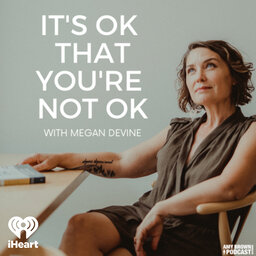New Year’s Resolutions vs “aggressive futurism” with Kate Bowler - Part 2
Is acceptance overrated? What happens when you have to face a new year without your person in it (or without the health you used to have!)? In this special two-part episode, we face the new year together - with special guest, historian, author, and queen of awkward conversations, Kate Bowler.
In part 2 of this episode we cover
- How do you have hope for the year to come when right now maybe isn’t so great?
- Acceptance, moving forward, and ferocious self-advocacy
- The Math of Suffering: this year, last year, and measuring love
- Why social bonds matter, and what happens when no one sees you
We're re-releasing some of our favorite episodes from the first 3 seasons. This episode was originally recorded in 2021.
Looking for a creative exploration of grief? Check out the best selling Writing Your Grief course here.
About our guest:
Kate Bowler, PhD, is an associate professor of the history of Christianity in North America at Duke Divinity School. Author of the New York Times bestselling memoir, Everything Happens for a Reason (and Other Lies I’ve Loved). Her latest book, No Cure For Being Human (and Other Truths I Need to Hear), grapples with her diagnosis, her ambition, and her faith as she tries to come to terms with limitations in a culture that says anything is possible.
Find her at katebowler.com and follow her on social media @katecbowler
About Megan:
Psychotherapist Megan Devine is one of today’s leading experts on grief, from life-altering losses to the everyday grief that we don’t call grief. Get the best-selling book on grief in over a decade, It’s Ok that You’re Not OK, wherever you get books. Find Megan @refugeingrief
Additional resources:
Read Kate Bowler’s memoir Everything Happens for a Reason (and Other Lies I’ve Loved)
Read Kate’s latest book No Cure For Being Human (and Other Truths I Need to Hear)
Want to talk with Megan directly? Join our patreon community for live monthly Q&A grief clinics: your questions, answered. Want to speak to her privately? Apply for a 1:1 grief consultation here.
Check out Megan’s best-selling books - It’s OK That You're Not OK and How to Carry What Can’t Be Fixed
Books and resources may contain affiliate links.
 It’s OK That You’re Not OK with Megan Devine
It’s OK That You’re Not OK with Megan Devine


